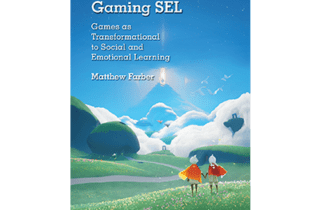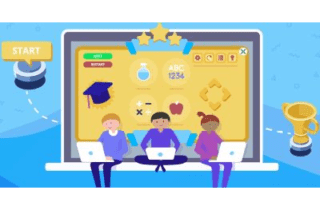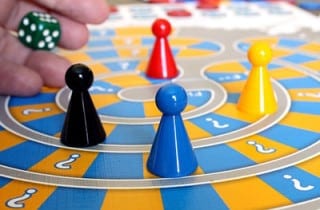Presented by Carrie Rogers-Whitehead, Founder, Digital Respons-Ability; and Christopher J. Ferguson, Professor of Psychology, Stetson University
Moderated by Joyce Whitby, President, Innovations4Education
Presented by Matthew Farber, Ed.D., Assistant Professor, University of Northern Colorado
Moderated by Jennifer Ehehalt, Sr. Regional Manager, Common Sense Education
In this edWebinar we’ll cover how to motivate your students while also fostering collaboration, creativity, and opportunity to embrace failure.
In this edWebinar, Matthew Farber, Ed.D., social studies teacher and game-based learning author; and Steve Isaacs, video game design and development teacher, will discuss how games can create a shared experience for students, much like a field trip.
In this webinar, Matthew Farber will share about his use of tabletop game jams in his middle school social studies classes as well as his digital game jams in the after-school club he advises.
In this webinar, you will learn how personalized SEL games are uniquely meeting the needs of both Tier 1 and Tier 2 students.
Join university adjunct instructor Shannon Holden as he introduces one of the easiest online platforms for educators – Kahoot.
Using the same mechanics that make video games so compelling, you can transform your classroom so that students have a great time, help each other thrive, and keep coming back for more! Classcraft is a free online platform that turns any classroom into a giant role-playing game played through the school year. In his presentation, Shawn also defined what makes a good video game, how those concepts went into Classcraft’s design, and how the Classcraft platform has transformed the lives of hundreds of thousands of students worldwide.
American history takes on new and personal meaning for students when they assume the roles of teens in our country’s most pivotal times, from the American Revolution to the turbulent early 1900’s, as we evolved further as a nation of immigrants.
Interest in the potential of games for learning is growing, from researchers, practitioners and policy-makers, predominantly for their ability to engage students. However, Dr. Nicola Whitton, Senior Research Fellow at Manchester Metropolitan University argues that the benefits of games are greater than simply motivation.











